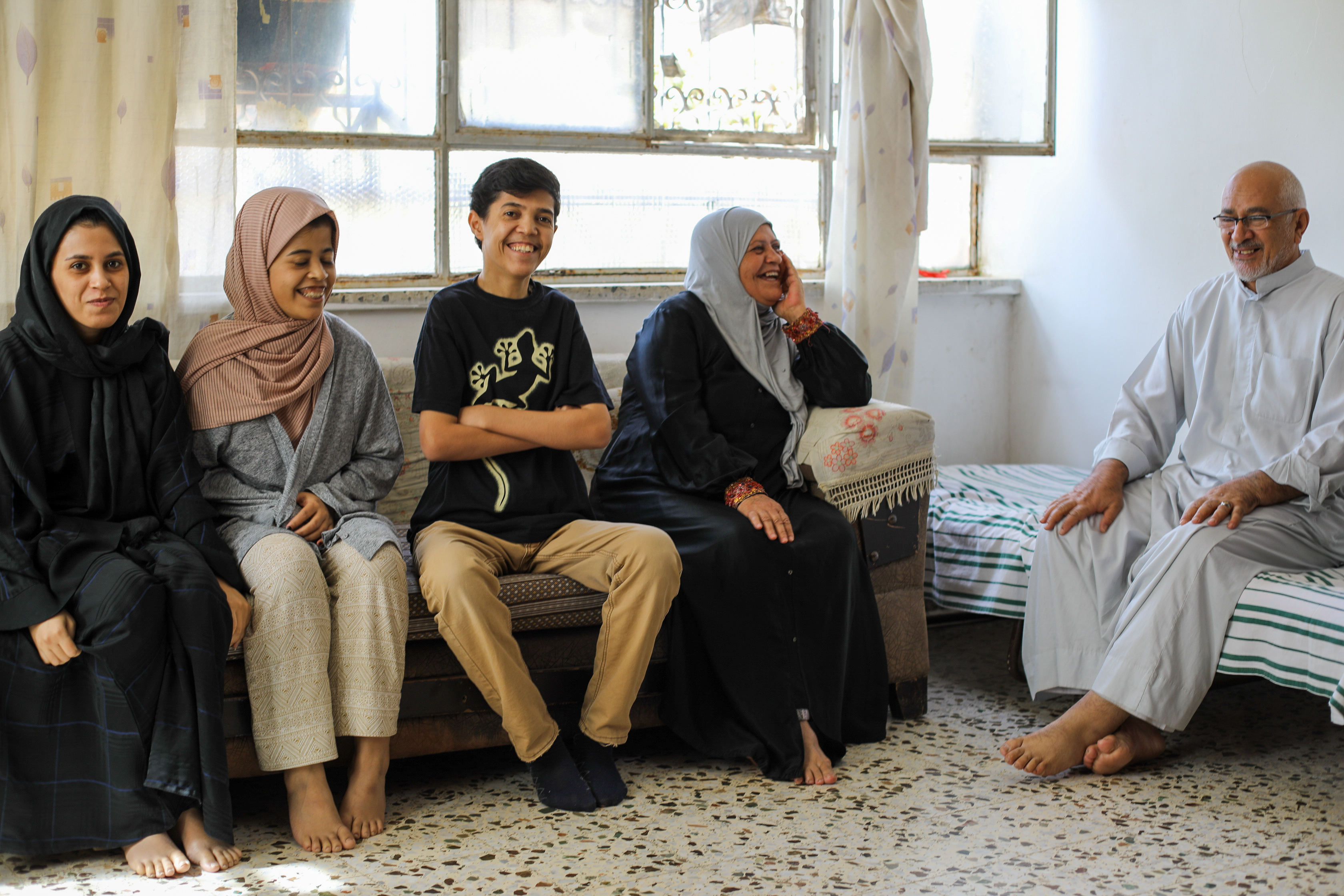Cash for Health provides relief for non-Syrian refugees in Jordan

Cash for Health provides relief for non-Syrian refugees in Jordan
“We live in a cycle of illness and fearing death,” states Jameela, or Umm Hayder, as she is otherwise known. An Iraqi refugee and mother of three, life has never been easy for her family. Ever since her oldest son, Hayder, was born 27 years ago, they have constantly been going backwards and forwards between hospitals for blood transfusions after he was diagnosed with thalassemia, a genetic blood disorder which results in the excessive destruction of red blood cells.
Prior to the conflict in Iraq in 2003, Jameela explains that the situation was manageable but when the fighting started the process of travelling the 60km between their home in a village south of Baghdad to the hospital in the city became more dangerous than ever.
“At one point the hospital stopped working so we had to try and smuggle blood from the blood bank in the city to the local clinic in our village so Hayder could do the blood transfusions. We frequently drove through airstrikes and shooting. But the risk of what would happen to Hayder if we didn’t get the blood was greater than the risk of the journey. There was no choice.”

Um Hayder explains the difficulties her family have faced while trying to cover their health expenses © UNHCRJordan
After taking this risk for three years, the family had had enough and decided to flee across the border to Jordan. In 2006, they settled in Azraq village in north-east Jordan and enrolled the three children in school. “We’re from a rural area, we wanted to live in a place which felt like home,” explains Abu Hayder.
Despite finding safety, the weekly visits to the hospital, now in Amman, continued, in order for Hayder to receive the treatment he needed. This 100km plus journey was made more difficult by the series of buses Hayder had to take; a journey which often took over four hours each way. The cost of this transportation, combined with the medical expenses, blood transfusions and additional medication that Hayder’s family had to pay for was often beyond their means.
His father had worked as a blacksmith back in Iraq and continued to do so when they first arrived in Jordan, but a debilitating stroke in 2015 stopped all means of the family earning an income especially considering Hayder’s medical condition continued to prevent him from also searching for employment.
“I was a primary school teacher back in Iraq,” explains Jameela, “but as Iraqis we aren’t allowed to work in this sector in Jordan. Sometimes I do some sewing or tailoring for neighbors to earn a couple of dinar but apart from that we are completely reliant on assistance.”
With increasing health and transportation costs, in 2016 the family decided to move from Azraq village to Jordan’s capital Amman. A decision also cemented by the fact that Thlal, their oldest daughter, had been diagnosed with thalassemia and also needed monthly blood transfusions.
“Back then the cost of one transfusion was anything between 45-75JD ($63-105),” says Jameela. “Hayder needed two transfusions a month and Thlal one. How were we supposed to afford these costs with no work?”
After reaching out to UNHCR, the family were enrolled on UNHCR’s cash for health program designed to help vulnerable refugee families cover their healthcare costs. They currently receive around 300JD every three months. So far this year, UNHCR has supported approximately 4,000 refugees with cash for health assistance.
Over the last year, however, their healthcare costs have significantly decreased. A policy change taken by the Jordanian Government to reduce the cost of accessing healthcare for non-Syrian refugees from the foreigner rate to the non-insured Jordanian rate, brings medical costs down by 75% in some cases. A multi-donor health trust fund supported by the United States, Canada and Denmark is now directly supporting the Ministry of Health to carry on.

Hayder is pictured with his siblings in Amman Jordan © UNHCRJordan
The reduction in costs for non-Syrians has also had a significant impact on UNHCR’s own health programming budget, meaning that the organization can help more refugees cover their medical expenses than before.
For Hayder and Thlal though, their battle with ill health is not over yet. Thlal is struggling to get monthly blood transfusions due to her rare OB blood type and the lack of availability of this blood type in Jordanian blood banks.
Hayder, on the other hand, is fearful about the future, having recently lost one of his close friends with thalassemia to the disease. Although he dreams of being a pilot, his health condition has prevented him from working at all and he feels frustrated about the lack of opportunities available for someone in his position. The family’s perspectives about going back to Iraq are also murky, given that insecurity persist in their village and there are few opportunities to continue their medical care.
While in Jordan, their daily life remains precarious: “Sometimes I feel that I’ve given up everything for my children’s health and safety,” says Jameela. But at least the regular cash for health gives her a little peace of mind.

Hayder, his parents and sisters, are pictured in their small apartment in Amman © UNHCRJordan


